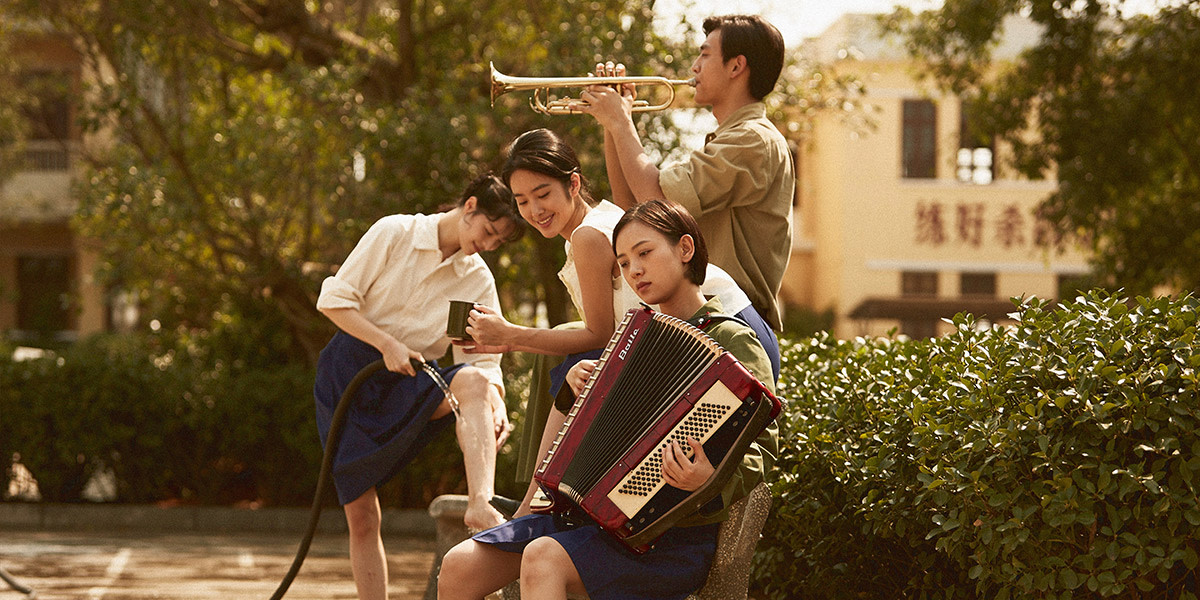TIFF 2017 Review: Youth
"Youth", Feng Xiaogang's newest drama follows a military arts troupe through the 1970's, in the years leading up and continuing past Chairman Mao's death. The film focuses on the various young members of the troupe, primarily of a newcomer and outcast to the group, He Xiaoping. The troupe essentially serves as a second family to many of the troupe members and we see the different relationships that flourish, transform, and break down over the years.
Beautifully composed and staged, my favourite sequences of the film were the moments where no words are spoken, whether they be moments of silence or in the lengthy musical theatre pieces the troupe performs. Xiaogang and cinematographer, Pan Luo, shoot the bulk of the film in sweeping camera movements, leading up to a performance, on stage, and during the later scenes of battle. To be honest, this is one of the most visually mesmerizing films I have seen in some time, which was one of the things that caught my eye when I first saw the trailer.
While Xiaogang does not avoid the negative aspects of Mao's regime regarding re-education, disciplines and the like, he shoots the film from the troupe members' perspectives, where the confines of the troupe's training quarters feels like a comforting, safe place to be. The contrast between this feeling of family comfort and the eventual atrocities of war they have to face come time for battle are quite effective. The cast are all excellent in their respective roles, getting across the changing and immense feelings the young characters are experiencing in a time of country-wide transition.
Where the film falters and prevents the film from reaching overall greatness is that some of the narrative beats didn't land as hard as I feel they should have. The score of the film is all top notch and just as grand as the visuals (in line with the triumphant feelings of the music the troupe plays), but occasionally feels too big for smaller gestures or moments. One moment comes to mind when one character rests their head on another's shoulder nearing the film's conclusion. It's a gentle and loving gesture, but I was taken out of the experience briefly upon being blasted with orchestral horns and strings.
Some narrative misses are also partially due to some rather obvious voiceover advising the audience of past or future events to come, thus removing some of the suspense or tension of when said events might occur. This was not a huge detriment to my enjoyment of the film, but it felt very direct and could have been removed without much change in the narrative's flow or reveal of character intentions.
I also felt that nearing the film's conclusion, as we move forward in time, Xiaogang only gives us snippets of the troupe member's lives. Each segment is fine on it's own, giving us some insight into a few of the key characters' lives in their adult lives, but I would have preferred seeing one longer afterwards sequence to allow for a more fleshed out transition into full adulthood. As it is, the ending left me less satisfied and at peace with the characters we come to know in their more youthful forms.
"Youth" leaves the audience with several moments of warmth, sadness, and beauty. The few beats that didn't hit for me ultimately only add up to minutes in the film's 2.5 hour runtime. While the film could use some trimming and more time dedicated to fewer characters in the conclusion, there is certainly much to still recommend and praise.
8/10

Comments
Post a Comment